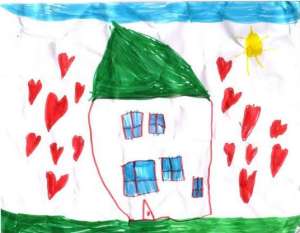I spent the last three days traveling to Boston with an old friend and his girlfriend,  scouting for apartments. They’ll both be PhD candidates in the fall–one at B.U. and the other at MIT. My old friend called me about a month ago to catch up, and we decided it may be neat for me to move in with them.
scouting for apartments. They’ll both be PhD candidates in the fall–one at B.U. and the other at MIT. My old friend called me about a month ago to catch up, and we decided it may be neat for me to move in with them.
I didn’t get into the MFA programs I applied to last winter, and the prospect of a gap year living with my parents at home as I applied to other programs didn’t seem pleasant. My friend agreed. Boston would have plenty of people, schools, and opportunities to explore. I’d be out of the house, living in the world.
The plan was to find a two-bedroom in Cambridge area for a reasonable price. Turns out, it wasn’t that simple.
My friend and I took an eight-hour drive to Nashua to meet his girlfriend and spend the night there. Along the way, we talked about college and high school. We’ve known each other since fourth grade, and since then, we’ve changed. Time, travel, and thought can do a lot to a person.
My friend studied engineering at Cornell, where four years of intense curricula and packed classes wore him down. For example, he once spent one day doing applications from 9 a.m. to 3 a.m. the next morning, breaking only for necessities.
“I’ll never do that again,” he said.
We swapped stories about old friends and old teachers, as the rain streamed down and Miles Davis’ murmured in the background, car headlights rolling by on the neighboring highway like a gold-toned river.
We met his girlfriend at her parent’s house, where we spent the night, crickets and frogs rattling and chirping outside. Before bed, I read some Heidegger, working on an essay on the “ethics of dwelling.”
For Heidegger, people don’t build to dwell. We build because we dwell. We are dwelling beings, he says. This our nature. We’re meant to feel at home in our own essence, and for Heidegger that’s Being itself. If we don’t dwell in our proper essence, he says, we feel “homeless,” longing for our proper place in the “house of Being.”
Heidegger considers this a dominant struggle in Western philosophy and remains the predicament of modern humanity. We conceal, misrepresent, or fail to recognize our own essence as it relates to Being.
Instead, we ought to let Being reveal itself. We do this by being in touch with the intimate, essential relationship each of us has to our own Being. This is our “existence.” Each of us “exists” in a different way because each of us “is” in a different way. And for Heidegger, how we exist defines how we dwell.
Abstract stuff for a late night, it put me to sleepy pretty quickly.
The next day, our search began. We pulled into Boston and parked near our first appointment on Massachusetts Ave, a packed road with shops and restaurants filling both sides, pooled by pedestrians and packed by cars. One realtor couldn’t meet us because his car broke down. Another didn’t have any more properties to sell in our price range.
We stopped at an independent coffee shop and set up more meetings.
The first realtor, a young guy with jeans and a graphic T-shirt, borrowed his brother’s car and met us at his office a few hours later. His two properties had sold–one a few minutes before we met. Still, we set up a meeting for one later in the day. From there, we toured our first property, an overpriced unit with a cramped galley-style kitchen and an weathered, grime-tinted bathroom.
“I just can’t see myself living there,” said my friend’s girlfriend. I agreed.
We set up more appointments, grinding out a few hours at Starbucks on our laptops. I looked at finances, realizing that even with a job, things would be crunched–probably even impossible. I thought of Wilson Micawber’s advice from David Copperfield: “Annual income twenty pounds, annual expenditure nineteen nineteen six, result happiness. Annual income twenty pounds, annual expenditure twenty pounds ought and and six, result misery.”
I didn’t even have enough money for the application. I didn’t have a a job for the fall.
In the evening, we saw a second property: a cheap unit in an inopportune area with stuffy second-story bedrooms nearly cut in half with sloped ceilings. But the bathroom and kitchen were nice, and we felt more “at home” than in the first.
The next day we had similar luck–or lack thereof. One place had a bathroom the size of my dresser, giving new meaning to W.C. The other had no closets in either bedroom, but a small nook in the family room. One realtor talked-up the age of his wife, while the other was a twenty-something guy who looked identical to my high school English teacher.
In the end, no place really worked, and as we stumbled onto our road home through the Boston traffic, I planned my future on the yellow, blue-lined pages of my Rhodia pad. I ended up with about four pages of arguments and counter arguments, T-charts and webs of costs and benefits, vague dreams and anxieties quantified and categorized as best as I could.
Outside of Albany, we pulled into a town for a bathroom, stopping at a Holiday Inn. I waited out by the car.
An abandoned warehouse stood nearby with bleached gray walls, marred by graffiti. Fog-white windows in tidy grids had the occasional broken pane, looking like a winking eye. Behind me, the sunset glowed in an orange haze wedged between the tangled town below and the splotched rain clouds spitting at me from above. My hand drummed against my hip, wishing it had a cigarette.
I felt alone but comfortable with my loneliness. I was happy to be going home and realized that perhaps home is more than the existential feeling of belonging I used to associate with it. It’s also physical, a place where you can breath, maybe think–perhaps even rest–the din of the real world dulled by its walls. What gives it that quality, I don’t know.
Perhaps it’s what Heidegger says. A proper building “gathers” various elements of existence together, letting us dwell. For him, it’s like a well-crafted poem. In his words, “Poetry does not fly above and surmount the earth in order to escape it and hover over it. Poetry is what first brings man onto the earth, making him belong to it, and thus bringing him into dwelling.”
Likewise, a building brings us home. It opens up a “space” for humanity to dwell properly, close to our essence. For Heidegger, this is a very physical, natural, and social phenomena, hardly the way it’s portioned or angled. We feel a certain way in such a space, as if it fits into the world and we fit into it. We may not be able to describe why, but we can feel it.
I continued to stand in the parking lot. Around me, the sky was beautiful, like a canvas stained by a child playing with water colors. Travel shows you beauty and devastation: bored businessmen leaning on a metal pole thumbed by millions before them on a subway, clear skies cresting mountaintops, beggars with long hair and shopping carts limping through the ghetto. This forces you beyond yourself and the daily rhythms of life.
But in the end you must come home and dwell.
I got back in the car. Slowed by lightning cracking the sky and rain pouring in sheets, we nevertheless reached home–or at least the house where I grew up. When the others drove away, I went out back and smelled the wet, wet grass.
Beneath a canopy of oak and maple leaves, I knew I couldn’t afford Boston, not unless I got a sudden breakthrough in my job search.
I’ll probably need a gap year living at home, piecing my life together, making money, and applying to philosophy PhDs. It won’t be easy, but it looks to be the only realistic option. I need a practical foundation before I build a life. I can’t access my passions without a foundation to flourish.
Like a recent book by John Armstrong says:
What we do with our lives is obviously central to who we are. What we expend our mental energy on, what we put our emotional resources into, where we deploy courage or daring or prudence or commitment: these are major parts of existence and are inevitably much connected with work and earning money. And we need these parts of existence in order to find proper application in activities that deserve our best efforts. We don’t’ want to reserve our central capacities for the margins and weekends of life.
Now, I only have 100 dollars in my accounts, no license, and a sketched out plan requiring clarity. It’s a start. But I have a long way to go. In the meantime, I look for where I dwell, where I feel most “at home.”

It’s a far better start than most in this poor old world, my friend. I wish you the best.
Thanks, Mikels. That gives a lot of perspective. So often we get caught up in our own lives, we forget the world around us.
I enjoyed this, thanks
Thanks for coming by; glad my writing has some resonating.